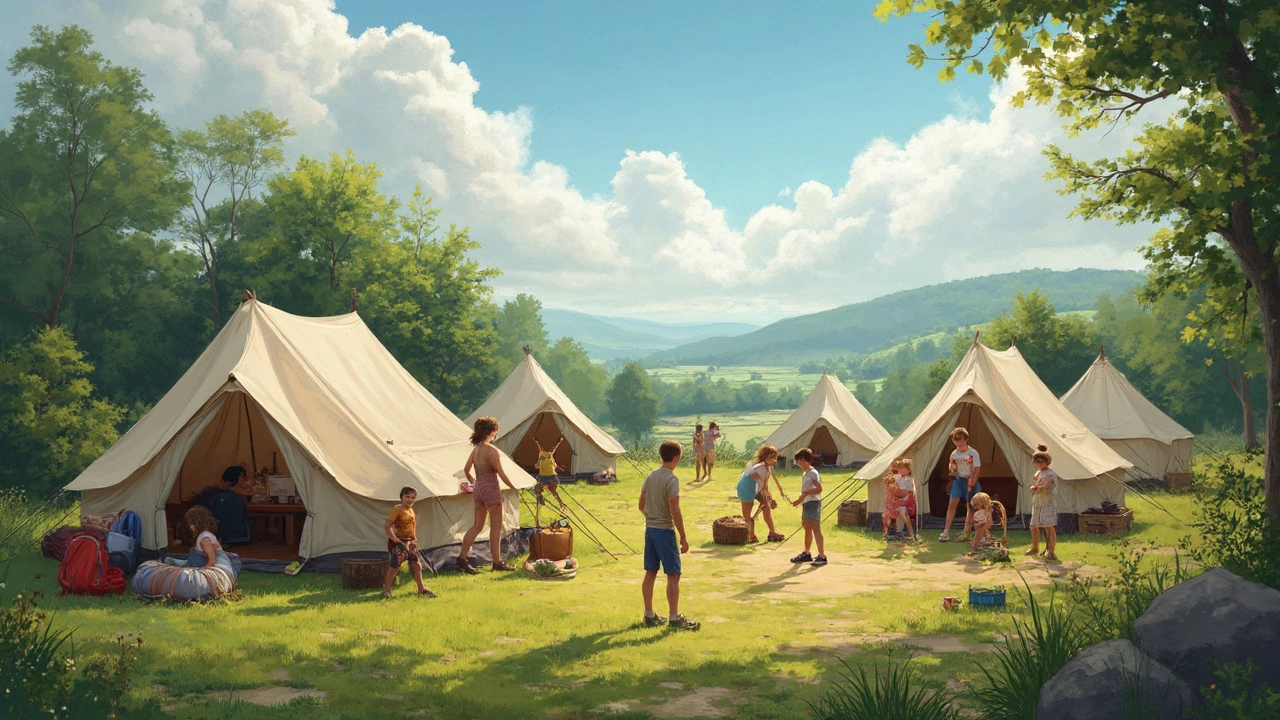Outdoor Accidents: Easy Ways to Keep Yourself Safe
Nothing ruins a holiday faster than a slip, a fall, or a sudden health scare. Whether you’re pitching a tent, driving a motorhome, or just hiking a trail, a few simple habits can stop most accidents before they happen. Below you’ll find the most common slip‑ups and practical steps you can take right now.
Common Causes of Outdoor Accidents
Most mishaps trace back to three things: poor planning, bad weather, and equipment that isn’t set up right. For example, setting up a campsite on uneven ground can cause a tent pole to topple, while trying to drive a motorhome on a steep, slick hill can lead to a loss of control. Another frequent trigger is ignoring your body’s signals – powering through fatigue or dehydration often ends in a stumble or a faint.
Weather surprises also play a big role. A sudden gust can yank a poorly anchored tarp, and a sudden drop in temperature can cause hypothermia if you’re not dressed in layers. Finally, equipment failures – a cracked water tank, a frayed electrical cord, or a broken bike brake – are easy to miss during a quick “I’m ready to go” check.
Practical Steps to Avoid Them
Start every trip with a short safety checklist. Look over your gear for wear and tear, test lights and brakes, and make sure you have a first‑aid kit that’s stocked and easy to reach. When you arrive at a campsite, walk the area first: level the ground, remove sharp sticks, and set up a windbreak if the site is exposed.
Weather awareness saves lives. Check a reliable forecast before you leave and keep an eye on the sky while you’re out. Pack a lightweight rain jacket and a warm layer even on sunny days – conditions can change fast in the UK.
If you’re driving a motorhome, treat it like a big truck. Keep your speed low on winding roads, use lower gears on hills, and give yourself extra stopping distance. Always lock the vehicle when you’re sleeping, and store heavy items low and centered to keep the centre of gravity stable.
Hydration and nutrition are often overlooked but they keep your body sharp. Carry a reusable water bottle, sip regularly, and snack on high‑energy foods like nuts or fruit bars. When you feel tired, take a short break rather than pushing on – a 10‑minute pause can prevent a fall later.
In case an accident does happen, knowing basic first aid and having a plan makes a big difference. Learn how to treat cuts, sprains, and heat‑related issues. Keep emergency numbers saved on your phone and let someone know your itinerary, even if it’s just a quick text to a friend.
Bottom line: a little preparation, a quick glance at the weather, and a habit of checking your gear can stop most outdoor accidents before they start. Keep these habits in your routine and you’ll spend more time enjoying the scenery and less time dealing with emergencies.
How Risky Is Camping? A Real Look at Staying Safe Outdoors
Camping with family sounds straightforward, but it’s not always a walk in the park. This article breaks down real risks at family campsites, from weather surprises to wildlife encounters. You'll get facts on what actually causes most injuries and what you can do to dodge them. With first-hand tips and surprising stats, the goal is to make your trip safe and fun. Forget scare tactics—this is your no-nonsense camping safety checklist.
